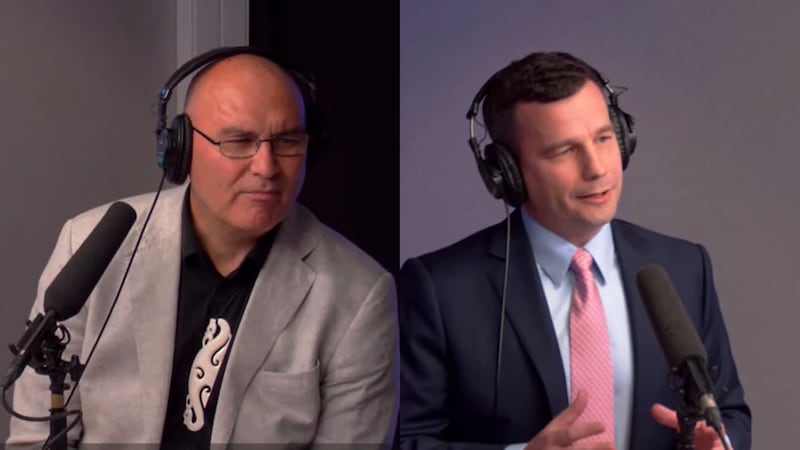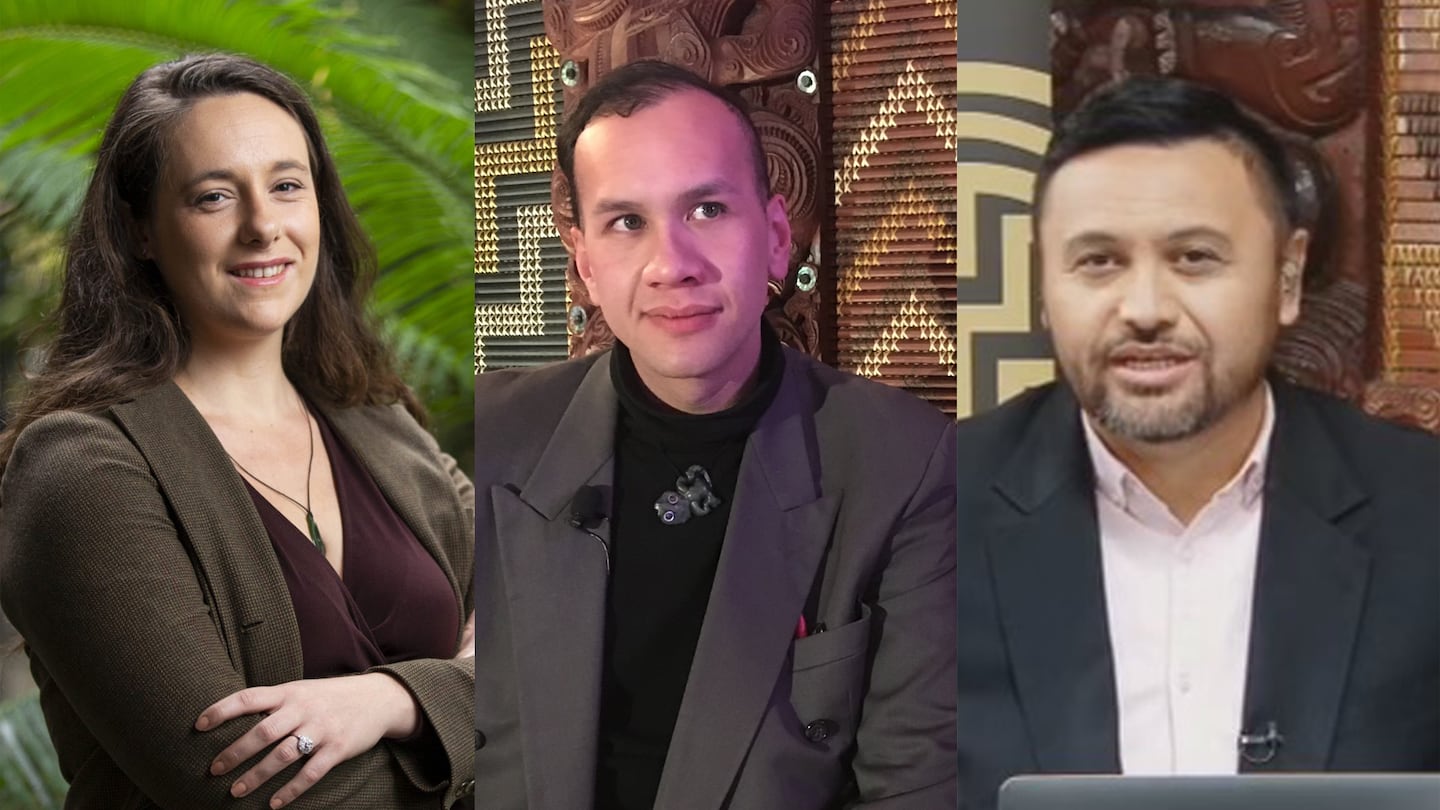Tuesday night saw a fierce debate between Ngāti Toa Rangatira’s Helmut Modlik and Act’s David Seymour, both arguing their cases on the te Tiriti o Waitangi and the Treaty of Waitangi.
But who won?
Te Ao Māori News spoke to three political commentators - Tanith Wirihana Te Waitohioterangi, Roihana Nuri, and Lara Greaves.
Grieves and Nuri believed Modlik won, while Wirihana Te Waitohioterangi saw it more as a draw.
Wirihana Te Waitohioterangi said the Ngāti Toa Rangatira chief executive made one mistake.
“He argued that we ceded governance. We did not cede governance under kāwanatanga, we ceded governorship.
“We had no reason to cede governance any more than we had reason to cede tino rangatiratanga.
““David Seymour’s biggest issues I think were the way he argued about the Treaty. He mischaracterised it as an agreement between races.
“This is an agreement between sovereign nations, not just tribes,” they said.
Nuri said Modlik won in his eyes due to his words already aligning with his views more.
“My values align with Helmut more, so I’ll just put that out there now, and we’re giving oxygen to David Seymour with his agenda to determine how to interfere with our lives. One of my overall overarching takeaways from the debate is: Why are we still allowing it in 2024?”
He called the debate a sideshow “because in the communities that I live in, we just wanna get on with making more competent decisions, making decisions that affect us.”
Greaves thought the iwi leader spoke to the knowledge she had been researching for almost a decade.
“He was speaking from the same base of knowledge as me and that is what we would say is the accurate historical record,” Greaves said.
According to RNZ, members of the audience were polled to see who they believed won the debate after it wrapped up. - 54 percent voted for Helmut Modlik and 43 percent for David Seymour.
Was it a good debate?
But there were mixed reactions from the experts when it came to the actual debate.
Greaves thought it was “excellent” due to it being a debate fully around the treaty.
“Normally when we’re talking about te Tiriti and talking about Māori rights or anything of interest, anything around that, it’s just a question thrown into debates.
“I really enjoyed the debate outside of the electoral cycle that was about a policy issue.
“I wish we had more debates that were specific about this, bringing people together from different sides of the political spectrum, I think that’s a really positive thing for democracy,” she said.
Wirihana Te Waitohioterangi couldn’t give it a rating but said they wanted a “far greater debate” over the Treaty taking place between Seymour and Māori experts.
“We would see how he would go up against the likes of Annette Sykes and others, who are able to really hammer that point home.”
Nuri believed it was a “nothing debate”.
“Only those in the government sector and politicians and iwi leaders, that sort of top echelon of Aotearoa society are really interested in seeing what is being said. I think the win of it is the clarity of the message from both sides.”
He said the trouble Seymour and Modlik had was explaining how their arguments would affect people on a day-to-day basis.

“Is this debate the thing that we’re talking about when we’re going shopping on the street? Well, actually, let me make it very clear it isn’t. I’ve heard more about the Tarawera sewerage scheme, that the [Rotorua Lakes] Council wants to run a shit pipe across our most sacred of Te Arawa lakes. These are the things our people care about in my community, whether they listen to the debate or not.
“Are we gonna be here in 3024, talking about the same thing with the same rhetoric? Basically we need to move past these types of conversations and work around inclusivity,” he told Te Ao Māori News.
Greaves believed it was important for Kiwis to learn more about Aotearoa’s history to understand the Treaty’s place in the country.
“The last Labour government was trying to do this putting New Zealand history in the school curriculum. We need to make sure that we’re having these discussions about history.
“I think the debate is going to be very different, say, 40 [to] 50 years from now with the knowledge of the generations coming through schools and universities at the moment, and they’re discussing this from a different place.
“I think a lot of what Helmut was trying to do is to educate people as to what the bulk of evidence is now saying,” she explained.
Although Seymour had asked for people to debate him, Wirihana Te Waitohioterangi believed he wasn’t actually on the podcast to engage in a real debate.
“He was there to appeal to the masses of New Zealand, who are largely non-Māori. He is there to double down into that same old voting group and also for those Māori who do not believe or follow in the ways of our people,” they said.




